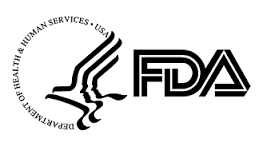
Editor's Note The Department of Homeland Security's Cybersecurity and Infrastructure Security Agency (CISA) proposed a new rule that would require hospitals and health systems to report any cyberattacks or ransomware attacks to the agency within 72 hours and any ransomware payments within 24 hours. The healthcare sector is one of…

Editor's Note Older Americans are at heightened risk for both short-term and long-term hospital readmission following major surgery, according to a study from Yale University published February 28 in Jama Network Open. Readmission places a major financial strain on health systems, researchers write, pointing out that the total cost…

Editor's Note A team of Johns Hopkins researchers has designed a robot capable of performing the most complex, delicate procedures—including head and neck tumor resection—with accuracy greater than many human surgeons. As reported by the institution on March 18, ASTR: the Autonomous System for Tumor Resection is an autonomous, dual-arm,…

Editor's Note Although the use of propofol for colonoscopy has been rising due to beliefs that deep sedation leads to greater patient comfort, a recent systematic review and meta-analysis of nearly 1,500 patients from nine randomized controlled trials shows this view is not supported by available evidence. Published March 8…

Editor's Note A simple, two-question survey could help identify patients most likely to develop chronic pain during recovery from surgery or injury and direct them toward proactive, holistic services that reduce reliance on opioids. NEJM Catalyst published the findings on March 20. Conducted by a research team from Duke University,…

What if a surgeon decided to perform a procedure on a patient that was not totally necessary? It happens more often that one might realize. As recently as August 2023, Forbes published an article that cited a Harvard Business Review report stating that over 50% of lumbar spine surgeries are…

The promise of quicker recovery and fewer complications from sedation, anesthesia, and pain management have drawn clinicians and patients alike to procedures performed in ambulatory surgery centers (ASCs) and other outpatient settings. However, sedation, anesthesia, and analgesia add their own risks to those of the procedure itself. Understanding the latest…

Editor's Note Collaboration between Johnson & Johnson and Nvidia could soon enable surgeons to automate documentation by using artificial intelligence (AI) to scan video of procedures. CNBC reported the news March 18. Surgical video scans are just one possible application of the collaboration, with the report noting that “J&J’s MedTech…

Editor's Note An ongoing US Food and Drug Administration (FDA) evaluation of plastic syringes made in China reveals that quality problems are more widespread than initially believed, the agency reported on March 19. The update to an original November 23 safety notice recommends the following action to alleviate potential quality…

Editor's Note An augmented reality headset provided a scrub team with a detailed, mixed-reality view of a microsurgical spinal procedures to streamline surgery at Cromwell Hopsital in the UK, according to a March 14 report in Fox Business News. The headset, an Apple Vision Pro, was linked to eXeX, described…